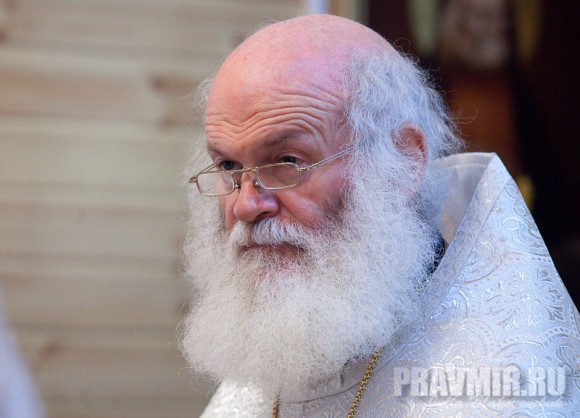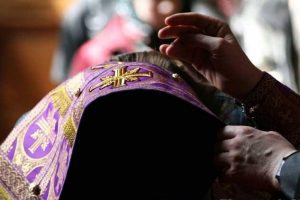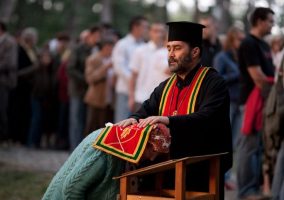Heartfelt contrition for ones sins and the determination not to repeat them are great fruits, and by no means the first steps of repentance. Ideally, our entire life should be repentance. Everyone remembers the Apostolic commandment: Pray without ceasing (Thessalonians 5:17). This refers to repentance. The Jesus Prayer – “Lord Jesus Christ, Son of God, have mercy on me, the sinner” – is a prayer of repentance.
We sin, due to our infirmity, continuously – if not in deed, then in thought. And we need to repent continuously. Therefore I do not think that we should make parishioners constantly repeat their daily sins at Confession. If someone feels that he needs the prayerful support of a priest, he can list them; we have Confession in our church every day, morning and evening.
But, strictly speaking, Confession is the Mystery of one’s reunification with the Church. By committing a grave sin, one falls away from the Church, and at Confession one is returned to the Church through the Mystery; one is received back into Eucharistic communion. Therefore I do not insist that people who regularly receive Communion need to come to Confession and list all their daily sins before every Communion.
The Christian’s task is not to observe rules, but to be in constant prayerful union with God. Given our weakness, this means self-reproach. Not in despair and self-scourging, but in self-reproach – that is, in the realization and recognition of our sinfulness with simultaneous faith in God’s mercy. That is, in the condition expressed in the Jesus Prayer, in the prayer of the publican.
But in many prayers it is written that “I am the most sinful of all people,” which is a more stringent assessment. The saints who compiled these prayers probably felt thus, because they evaluated themselves in the light of God’s grace. But a simple layperson who is new to the Church will hardly feel himself sincerely to be the most sinful of all.
The saints themselves did not feel this way immediately. Abba Dorotheus admitted to his teachers, Barsanuphius the Great and John the Prophet: I look at my life and understand that I am worthy of eternal torment; I know that I am worse than all people, but I do not feel this in my heart. And the Elders replied to him that he was on the right track. It takes a lifetime to understand in our hearts what we really are – and this is the spiritual path.
I consider that it is not right to say “I am the worst sinner of all people” if you do not feel this way. I myself, unfortunately, do not feel this way – although I understand that I should. But we, the faithful, do at least recognize our sins. Do we need to wait for a miracle to experience them the way the saints did? We do not need to wait. Therefore let us even now pray as we can.
I pronounce the words: “Have mercy on me, O God,” but do not feel contrition of heart. Well, what should I do…? I will reproach myself with the faith that if I will work on my soul and maintain communion with the Church, that the Lord will not abandon me. I will pray with attention, following the advice of St. John of the Ladder, keeping my mind in the words of the prayer. If this does not work, I will pray with my eyes and mouth – even if with a cold heart and an absent mind, but in the hope that even such a small labor can bring me closer to God. As the Holy Fathers said, better bread with ashes than not eating anything at all.
Interview conducted by Leonid Vinogradov.
Translated from the Russian.


















